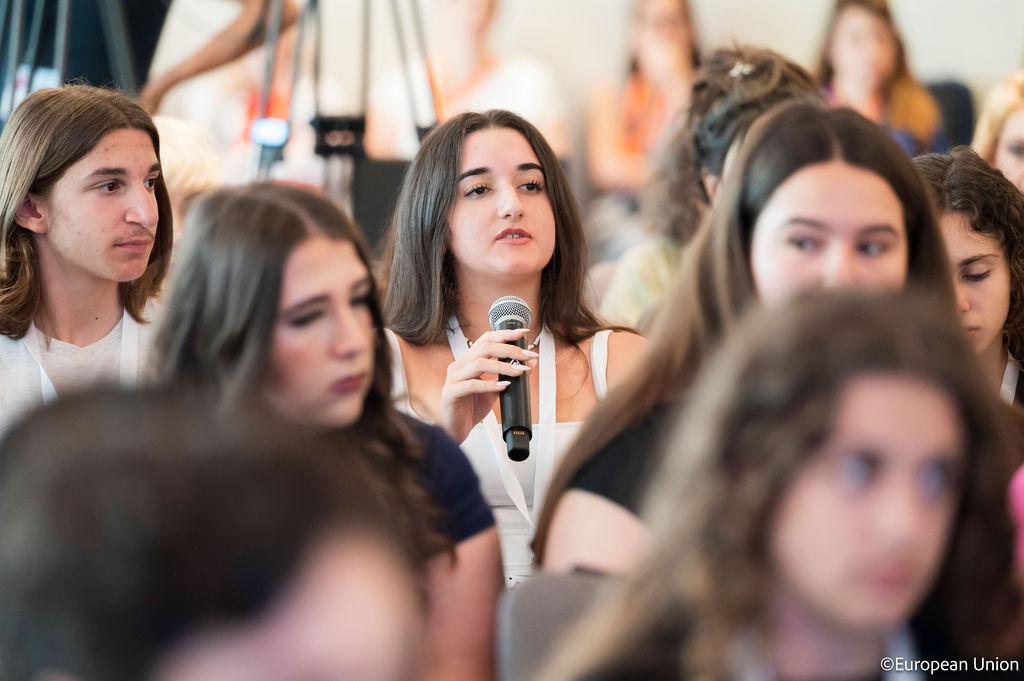
As part of the preparation of the EU Action Plan on Cyberbullying, 6,343 children and teens shared their insights in an online survey. What they think about cyberbullying, how to prevent it and what support for victims should look like.
Results showed that in some areas, lived experiences and needs for support and prevention were quite different between girls and boys. Not everyone perceives or experiences cyberbullying in the same way.
On the International Day for the Elimination of Violence against Women - which focused on online violence, let's hear from the girls, and what they need to help them feel safe online!
Awareness about cyberbullying
In general, girls reported as being more aware of cyberbullying than boys and were more familiar with people being mean to each other online.
- Slightly more girls said they had experienced bullying: 25% compared with 21% of boys
- 43% of girls said they had seen it happening to someone else (35% of boys)
- 52% of girls had noticed a group being mean to someone online (40% of boys)
- 24% of both girls and boys said that girls were more likely to be bullied, while only 7% said it was more likely for boys
Impact of cyberbullying
The biggest differences between how girls and boys reported on the impacts of cyberbullying were:
- 58% of girls said it makes people feel powerless (43% of boys)
- 70% of girls said it makes people feel lonely (52% of boys)
- 64% of girls said it makes people feel depressed (52% of boys)
Support and prevention
"To be consoled, supported and never abandoned” (Girl, 12, Italy)
Children and teens, especially girls, highlighted the need for:
- Non-judgemental emotional support from adults, peers, and professionals
- Opportunities to talk openly with family or trusted adults
- Reassurance that they will be believed, supported and not criticized
- 67% of girls said they would go to a parent or carer for help (56% of boys)
- 45% would go to a friend (35% of boys)
- 49% of girls said they wanted to have trusted adults or peers to talk to (34% of boys)
Girls were more vocal in wanting action from schools, adults and social media platforms.
"If you receive a report that a certain person is bullying, you should take real action, e.g. freeze the account for a few days or weeks, or investigating into the whole situation." (Girl, 14, Lithuania)
- 49% of girls said that that knowing that something will be done would make them feel safer (39% of boys)
- 38% of girls said they were more likely to want guidance on what to do (24% of boys)
- 58% of girls said they wanted schools and adults to provide support for victims (36% of boys)
- 61% of girls agreed that schools should have clear rules and consequences to help stop cyberbullying (46% of boys)
- 62% of girls said social media platforms should take the reporting seriously and inform about follow up (46% of boys)
